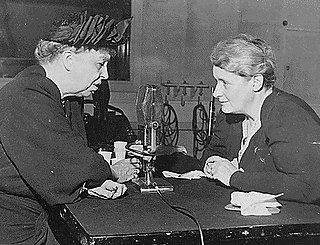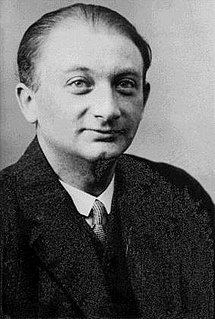A Quote by Oscar Wilde
In the old times men carried out their rights for themselves as they lived, but nowadays every baby seems born with a social manifesto in its mouth much bigger than itself.
Related Quotes
These young people need to see that there's something bigger out there than what they're looking at everyday or seeing in the news or on social media. They need men and women to come into their lives who will give them a bigger vision of the world, of life, of opportunity, of what they can become rather than what they think they are limited to you.
Although the noise of the chattering clientele is much more significant than the topics of their chatter, it does finally constitute that type of social and indistinct expression that we refer to as rhubarb. The very particular volume in which people tell each other their news seems to generate all by itself that acoustic chiaroscuro, a sounding murk, in which every communication seems to lose its edges, truth projects the shadow of a lie, and a statement seems to resemble its opposite.
A woman's work, from the time she gets up to the time she goes to bed, is as hard as a day at war, worse than a man's working day. ... To men, women's work was like the rain-bringing clouds, or the rain itself. The task involved was carried out every day as regularly as sleep. So men were happy - men in the Middle Ages, men at the time of the Revolution, and men in 1986: everything in the garden was lovely.
Writers are much better behaved nowadays, for a couple of reasons. Once upon a time nobody was thinking of a career, unless you lived in New York, so there wasn't as much pressure to present a respectable exterior. And secondly, there was no social media. So if you were found face down on the floor - people did do that quite a bit; usually men, but not always - or fell through plate glass windows or got into scrapes, it became a rumor, and rumors are hard to pin down.
It seems to me that the novel is very much alive as a form. Without any question, every epoch has its own forms, and the novel nowadays cannot resemble that of the nineteenth century. In this domain all experiments are justified, and it is better to write something new clumsily than to repeat the old brilliantly. In the nineteenth century, novels dealt with the fate of a person or of a family; this was linked to life in that period. In our time the destinies of people are interwoven. Whether man recognizes it or not, his fate is much more linked to that of many other people than it used to be.
men are not born with a faculty for the universal and ... women are not reduced at birth to the particular. The universal has been, and is continually, at every moment, appropriated by men. It does not happen by magic, it must be done. It is an act, a criminal act, perpetrated by one class against another. It is an act carried out at the level of concepts, philosophy, politics.
As Mazzini said ... it is around the standard of duty rather than around the standard of self-interest that men must rally to win the rights of man. And herein may we see the deep philosophy of Him who bade men love their neighbors as themselves. In that spirit, and in no other, is the power to solve social problems and carry civilization onward.
The methods by which men have met and conquered trouble, or been slain by it, are the same in every age. Some have floated on the sea, and trouble carried them on its surface as the sea carries cork. Some have sunk at once to the bottom as foundering ships sink. Some have run away from their own thoughts. Some have coiled themselves up into a stoical indifference. Some have braved the trouble, and defied it. Some have carried it as a tree does a wound, until by new wood it can overgrow and cover the old gash.
When the taste for physical gratifications among them has grown more rapidly than their education . . . the time will come when men are carried away and lose all self-restraint . . . . It is not necessary to do violence to such a people in order to strip them of the rights they enjoy; they themselves willingly loosen their hold. . . . they neglect their chief business which is to remain their own masters.
If the bubble reputation can be obtained only at the cannon's mouth, I am willing to go there for it, provided the cannon is empty. If it is loaded my immortal and inflexible purpose is to get over the fence and go home. My invariable practice in war has been to bring out of every fight two-thirds more men than when I went in. This seems to me Napoleonic in its grandeur.







































